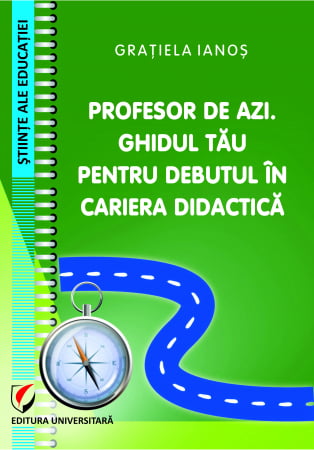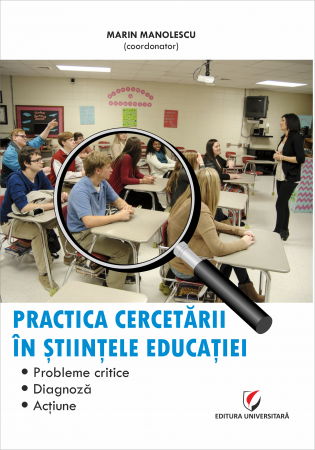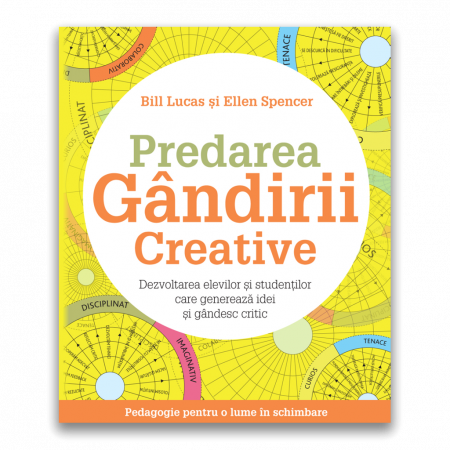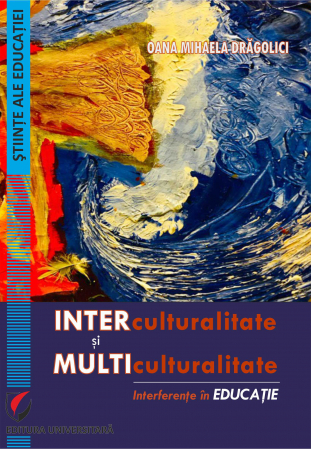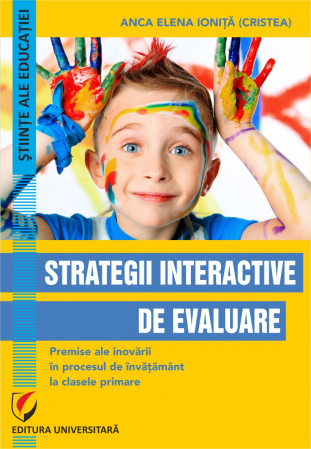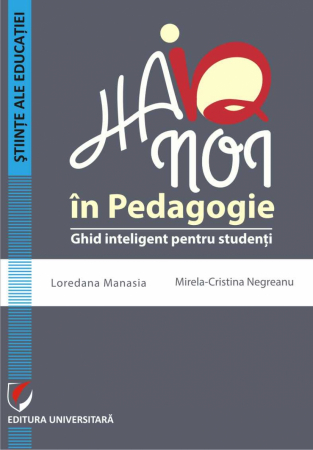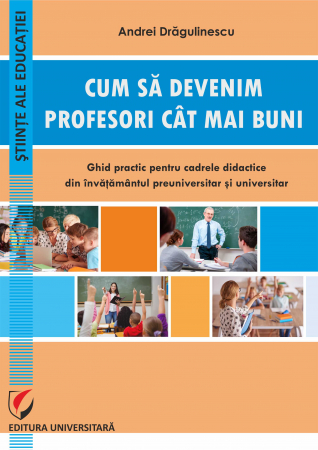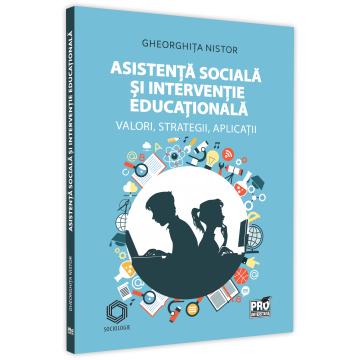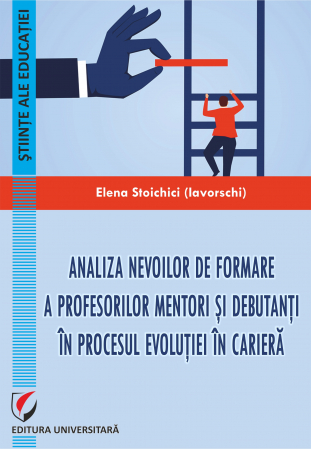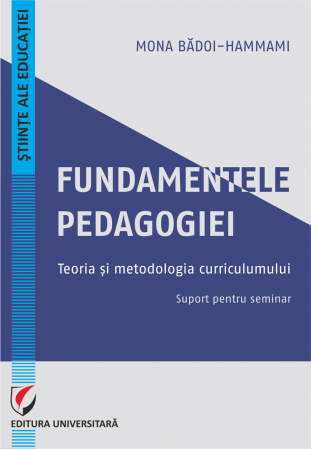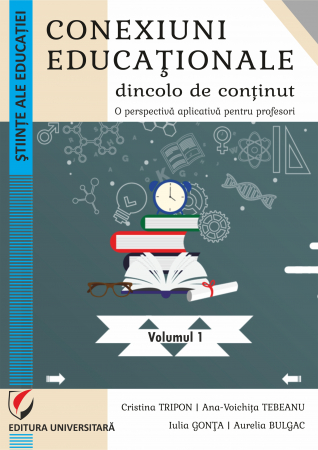ISBN: 978-606-28-1195-2
DOI: https://doi.org/10.5682/9786062811952
Publisher year: 2020
Edition: I
Pages: 280
Publisher: Editura Universitara
Author: Alexandru Strunga
- Description
- Authors
- Content
- More details
- Where to find it
- Reviews (0)
The work Introduction to Curriculum Theory integrates, consistently and comprehensively, the fundamentals of curricular conception in postmodern education and analyzes the conceptual and methodological models of educational curriculum development, from a multidimensional perspective (curricular research, concept, processes and curricular products). The paper has the features of a monographic study of reference in the specialized literature, analyzing in an informed way the curricular route traveled, from the epistemological fragility to the consolidated conceptual status, from the present time. Also, the implications for curriculum design, management and practice are revealed in terms of competence-based curricular model and pedagogical constructivism, which gives the value of methodological and operational construct of the paper, useful for researchers, decision makers, students in Education and teachers.
Prof. univ. Dr. habil. Claudiu Bunaiasu
Although it is recommended primarily to students in the field of educational sciences, from D.P.P.D.s and master students, the paper is aimed at all teachers who want to deepen modern and contemporary curriculum issues and last but not least researchers and specialists in these fields.
Prof. univ. Dr. Florica Ortan
Chapter 1. The concept of curriculum / 9
Chapter 2. Basics of curriculum theory / 20
2.1. Philosophical bases / 20
2.2. Epistemological and historical bases / 26
2.3. Sociological bases / 36
2.4. Psychological bases / 48
2.5. Pedagogical bases / 56
Chapter 3. Curricular models / 58
3.1. Dewey's model / 58
3.2. Bobbitt's model / 64
3.3. Bobbitt and Charters model / 65
3.4. Tyler's model / 66
3.5. Taba's model / 66
3.6. Walker's model / 67
3.7. McGee's model / 68
Chapter 4. Curricular theories / 69
4.1. Reproduction theory / 69
4.2. The theory of duplicity / 75
4.3. Resistance theory / 75
4.4. Reinforcement theory / 79
4.5. Resilience theory / 83
Chapter 5. Typologies and curricular approaches / 86
Chapter 6. Curricular objectives / 98
6.1. Defining curricular objectives / 98
6.2. Functions of curricular objectives / 103
6.2.1. Adjustment (self-adjustment) or activation function; control and optimization / 105
6.2.2. Anticipation or forecasting function / 107
6.2.3. Evaluation and evidence function / 108
6.2.4. Communication and axiological function / 109
6.3. Classification and ranking of curricular objectives / 113
6.3.1. Levels and taxonomies / 113
6.3.2. Operations / 125
Chapter 7. Curricular contents / 136
7.1. Delimitations / 136
7.2. Characteristics of curricular contents / 143
7.2.1. Validity / 144
7.2.2. Coherent / 148
7.2.3. Consistent / 154
7.2.4. Curriculum summary form and selection operation / 159
7.2.5. Problematization and interrogative presentation (processing) / 164
7.3. Operations on curricular content - interdisciplinarity and modulation / 168
7.3.1. The concept of operations on the content of the Curriculum / 168
7.3.2. D’Hainaut’s matrix / 173
7.3.3. Intradisciplinarity / 175
7.3.4. Interdisciplinarity / 177
7.3.5. Multidisciplinarity, transdisciplinarity and modular organization / 182
Chapter 8. Representations and curricular products / 186
8.1. Curriculum representation of the action - conceptualization and objectifications / 186
8.2. Curriculum representation of the action - structural elements / 189
8.2.1. Curriculum / 189
8.2.2. The educational project of the school / 191
8.2.3. School curriculum / 193
8.2.5. Calendar planning / 198
8.2.6. Lesson plan / 199
8.2.7. Textbooks / 202
Chapter 9. Curricular feedback / 209
9.1. Perception of the curriculum and the quality of education by young people in Romania / 210
9.2. The dynamics of educators' preferences in relation to the evolution of the postmodern curriculum / 213
Annexes / 221
Annex no. 1/221
Annex no. 2/240
List of tables included in the paper / 257
List of figures included in the paper / 257
Bibliography / 258
Selective bibliography / 258
Specialized articles / 266
Prof. univ. Dr. habil. Claudiu Bunaiasu
Customer Support Monday - Friday, between 8.00 - 16.00
0745 200 718 0745 200 357 comenzi@editurauniversitara.ro
6359.png)
![Introduction to Curriculum Theory [1] Introduction to Curriculum Theory [1]](https://gomagcdn.ro/domains/editurauniversitara.ro/files/product/large/strunga_intro-in-teoria-curriculumului_bt-3031-7637.jpg)
